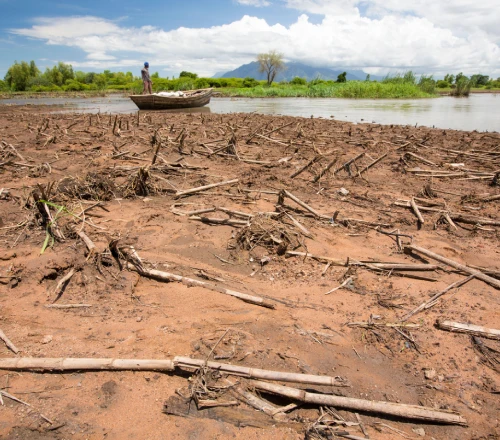Africa Climate Mobility Initiative
The Africa Climate Mobility Initiative (ACMI) was officially launched in September 2021 to set out a common agenda, informed by robust evidence, for addressing climate mobility across the African continent.
About the ACMI
Over a two-year period, the Initiative collected data, modelled future scenarios, and conducted extensive consultations with African and international experts and practitioners to arrive at a shared analysis and recommendations for addressing climate-forced migration and displacement. Bringing together diverse actors and stakeholders from the realms of migration and displacement, sustainable development, climate action, and peacebuilding, the effort supported the emergence of a new policy ecosystem on climate mobility, brought together in the ACMI Community of Practice.

Voices from the Frontlines
The Voices from the Frontlines platform presents data and analysis on current realities and future projections of climate mobility in Africa. It seeks to inform and galvanise action that will empower Africans to face climate change and shape resilient adaptation journeys.
African Shifts
In November 2022 the Africa Climate Mobility Initiative released a comprehensive report, African Shifts, presenting its analysis of current and potential future climate mobility dynamics in the continent, and an agenda for people positive adaptation in Africa. The report marked the culmination of ACMI Phase 1.
The Deep Dives
In 2023, the ACMI started implementing its Phase 2 by conducting Deep Dives in African countries, cities, and borderlands, identifying current and projected climate mobility hotspots across various geographies. This effort will culminate with the development of Climate Mobility Blueprints that will be used to inform and develop NDCs (Nationally Determined Contributions), NAPs (National Adaptation Plans), and other national policy instruments.








